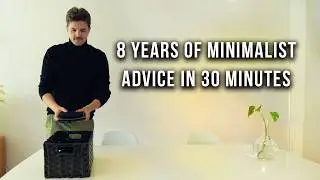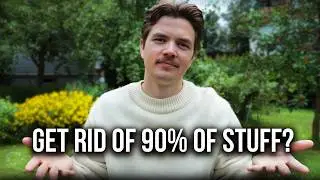The Dangers of Endless Pursuit Of Less - Minimalism
While minimalism promotes simplicity and intentionality, the endless pursuit of "less" can become counterproductive and even harmful. When taken to an extreme, minimalism can lead to a relentless cycle of purging and deprivation, where the quest for simplicity becomes an obsession. This pursuit can create a sense of never feeling satisfied or content, undermining the very peace and clarity that minimalism aims to provide.
One danger of extreme minimalism is the potential for increased anxiety and stress. The constant pressure to reduce and eliminate can make individuals overly critical of their possessions and choices, leading to decision fatigue and self-doubt. Instead of experiencing freedom, they may find themselves trapped in a rigid mindset where they are never content with what they have, always feeling the need to do more to achieve an elusive ideal of minimalism.
Moreover, an unbalanced approach to minimalism can strain relationships. Social interactions often involve shared experiences and activities that might require possessions or spending. For instance, hosting a dinner or participating in hobbies might require items that an extreme minimalist would view as unnecessary. This can lead to isolation or conflicts with family and friends who may not share the same stringent views.
Financial and practical implications also arise when minimalism is taken too far. Continually getting rid of items can lead to repeated spending when the need for certain items resurfaces, negating any financial savings intended by minimalism. Additionally, in the quest to own less, individuals might discard useful or sentimental items, leading to regret and a sense of loss.
Ultimately, the key to a fulfilling minimalist lifestyle is balance. True minimalism is not about deprivation but about making mindful choices that enhance one's quality of life. It’s about focusing on what adds value and joy rather than adhering to a strict numeric goal of possessions. Embracing minimalism with flexibility allows for a more sustainable and satisfying approach, where the benefits of simplicity are enjoyed without the stress of constant self-imposed limitations. Balancing minimalism with practical and emotional needs ensures that it serves as a tool for well-being rather than a source of stress and dissatisfaction.
• The Dangers of Endless Pursuit Of Les...































